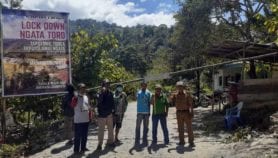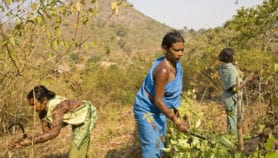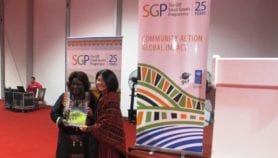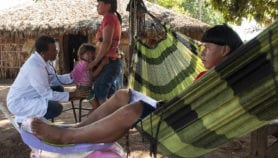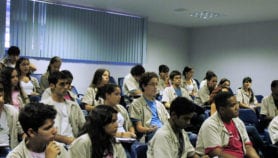By: Zoraida Portillo
Send to a friend
The details you provide on this page will not be used to send unsolicited email, and will not be sold to a 3rd party. See privacy policy.
[LIMA] Half a million laptop computers delivered to Peru as part of the country’s One Laptop Per Child (OLPC) programme are underutilised or not used at all, according to a government minister.
Martin Vegas, vice minister of educational management, made the comments during a visit to schools in the capital city Lima last month (29 September).
The One Laptop Per Child programme, created by US scientist Nicholas Negroponte, aimed to provide every child in the developing world with a laptop for educational purposes, at an affordable price.
Vegas told the Peru News Agency: "Two important factors are delaying the OLPC program in Peru. One is lack of teacher training, and another insufficient connectivity to the Internet from schools".
He added: "One of the priorities [of the Ministry of Education] is give appropriate training to teachers so they can use [laptops from the OLPC programme] for teaching in a smart way".
Vegas’ comments came after an independent survey warned in July 2010 that the programme may fail because of a shortage of trained teachers to implement it.
And a report by the Inter-American Development Bank, also published in 2010, found that just one in ten teachers had reported receiving technical support and that under two per cent of schools surveyed had Internet access.
"During all this time, the authorities have not done anything to resolve the [OLPC’s] numerous shortcomings," said Carlos David Laura Quispe, a researcher at Peru’s Economic and Social Research Consortium, who conducted the 2010 survey. "The Ministry [of Education] has continued to deliver more and more computers, leaving teachers to their fate."
Unlike other countries, such as Paraguay, where teachers were trained over 150 hours, teachers in Peru received only 40 hours of teaching and a guidebook, said Sebastian Silva, Latin America coordinator for Somos Azucar, which produces the software, Sugar, used by the programme.
Silva said that the existing software is not the most suitable for this multicultural, multilingual country.
Next year, Sugar Labs — which provides learning software for children — will host a ‘Sugar Camp’ in Lima, where the priority will be to translate all Sugar operating systems into Quechua and Aymara, to be used in the 2012 school year in the Puno region in the southeast of the country.
Christoph Derndorfer, co-founder of OLPC Austria, who has followed the Peruvian situation, said: "In a project such as OLPC, I strongly believe it’s important to enable independent community members to be able to contribute translations, educational content, learning programmes and so on.
"Allowing other entities such as non-governmental organisations, universities, students and teacher groups to actively participate in the teacher training process would indeed be part of the solution."
See below for a video about the OLPC programme:





